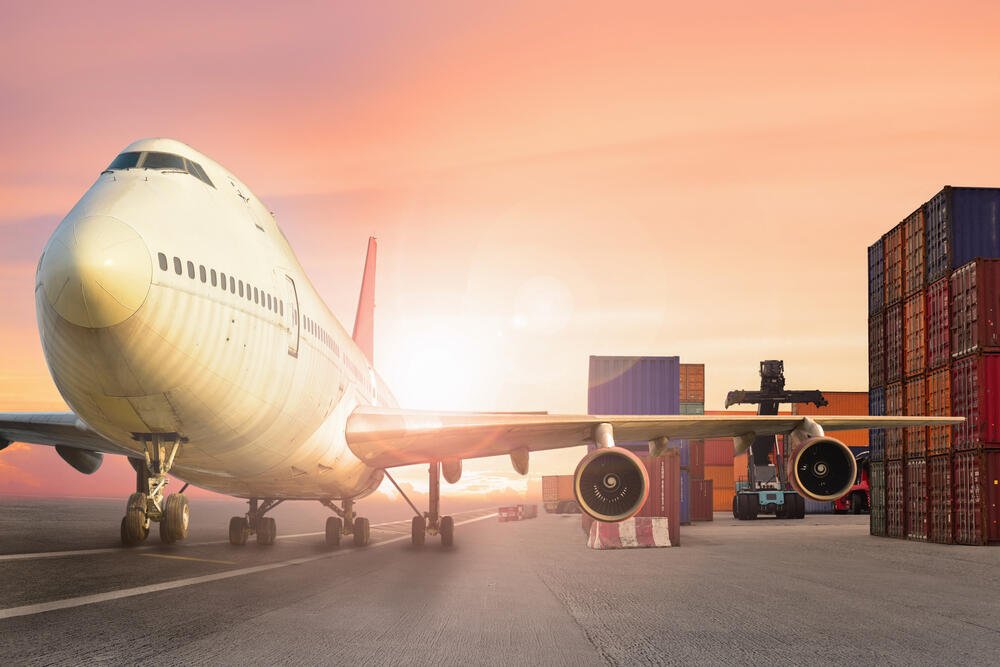
What insurance do you need if you're shipping a car by air?
The answer is complicated since it depends on several variables.
Including the car's worth, the shipping company's insurance coverage, and the laws of the country where it will be delivered.
We'll break down the different types of insurance coverage available. And help you determine which one is best for your situation.

What Is Air Cargo Car Insurance?
What is air cargo car insurance? A sort of insurance called air freight automobile insurance pays for any damage to your car while it is being transported by air.
This coverage pays for damages brought by collisions, fires, water damage, and other unexpected events.
It often also includes the price of repairs to the vehicle if it has been damaged or stolen.
In addition to covering the cost of repairs, air cargo car insurance may also offer protection for the interior and exterior of the vehicle.
Depending on the policy terms, it is designed to protect the seller or buyer from financial losses resulting from damaged, misplaced, or stolen items.
In some cases, it can cover delays in shipment that result in financial loss.
Air cargo car insurance is often purchased in addition to carrier liability insurance. Air freight companies usually provide this to cover their cargo and may have significant exclusions.
Air cargo insurance can provide more comprehensive coverage for shipping and receiving goods. It's essential to research the best coverage for your needs, as the value of your car will determine the amount of protection you should get.
Be sure to ask your insurer about any extras you might need, such as coverage for items inside the vehicle or mechanical problems that could occur during transit.
Additionally, some carriers require minimum levels of insurance before they will agree to transport an item – make sure you understand these requirements before signing anything.
How Does Air Cargo Car Insurance Work?
A type of coverage called air cargo car insurance offers security for vehicles transported by air.
It can cover damages from weather-related events, theft, misplacement, breakage, or shipping delays.
How does air cargo car insurance work?
Air cargo car insurance typically works by covering the cost of repairs to a car that is damaged or stolen while in transit.
The policy will often pay for interior and exterior damage, but it's essential to be aware of any exclusions.
The insurer will typically require documentation from the shipper and recipient, such as a copy of the bill of lading and proof of delivery.
What Doesn't Air Cargo Car Insurance Cover?
Air cargo car insurance typically does not cover any damage due to improper packing or loading of the car.
This means ensuring your vehicle is properly and securely packed before shipping; the policy will not cover any damage caused by poor packing.
Additionally, air cargo insurance does not cover mechanical failures or pre-existing damage.
If your vehicle has any existing damage, it is important to report this to the insurer before shipping to ensure it is adequately covered.
Additionally, air cargo insurance won't cover losses due to intentional acts of fraud or negligence on behalf of the shipper or carrier.
It's important to remember that air cargo insurance only covers physical damage to your shipment - it will only help if your goods are completed and recovered.
To ensure safe and secure transit, it's best to double-check all packaging and provide detailed instructions for handling your shipment before handing it off to a carrier.

How to Shop for Air Cargo Car Insurance?
It's crucial to consider your transport's unique requirements while looking for air cargo car insurance.
Please check what exclusions are included in any given policy, as this will help determine if it suits your needs.
You should:
- Pay close attention to the article, noting any vital information.
- List different types of insurance coverage mentioned in the article.
- Research each type of insurance coverage and how it works.
- Summarize your findings in a few sentences or bullet points.
Types of insurance coverage:
- Air cargo car insurance – covers the cost of any damage to a vehicle while in transit in the air, including collisions, fires, water damage, theft, and other unexpected events; typically covers repairs to the car as well as protection for the interior and exterior; may protect delays in shipment resulting in financial loss.
- Carrier liability insurance – usually provided by air freight companies to cover their cargo and may have significant exclusions; they need minimum levels before agreeing to transport an item.
- Comprehensive insurance – covers the cost of repairs to a car from any event, including theft, vandalism, and other non-accident related events; may also cover pre-existing damage.
- Classic car insurance – you may need to buy a classic car policy for certain types of vehicles.
- Total-loss insurance – covers the cost of replacing a wholly destroyed vehicle in an accident or other event; may also cover related expenses such as towing and storage.
Whatever option you select, be sure to read the fine print.
How to Make an Air Cargo Insurance Claim?
Making an air cargo insurance claim is relatively straightforward.
We listed the steps needed to get the compensation you deserve.
Follow these steps:
- Contact your insurer ASAP
- Provide proof
- Fill out a claim form and submit
- Insurer will investigate the claim
- Insurer to assess
- Insurer to award judgment
Please reach out to your insurer as soon as possible after realizing that a shipment has been damaged or lost.
This will allow them to investigate the circumstances and cover the costs associated with any losses.
You'll then need to provide proof of purchase and photos or videos of the damage caused by your shipment.
You might also be asked to fill out a claim form outlining the facts and any other relevant data.
After thoroughly reviewing the claim, your insurer will determine if they can fully or partially reimburse you for your loss.
Paperwork Required for Shipping a Car by Airplane
A significant amount of documentation is involved in shipping an automobile by air.
So, it's crucial to check that everything is in order before your shipment departs, such as:
- Air waybill or bill of lading
- Vehicle registration
- Car insurance
- Air cargo insurance
- Custom paperwork
- Taxes and fees receipts
- Proof of purchase
First and foremost, you'll need to obtain an air waybill or bill of lading from the shipper. This document lists all the relevant information about your shipment and serves as a contract between you and the carrier.
You'll need to send a copy of the car's registration and proof of insurance to the carrier, as well as present evidence of the car's purchase, such as an invoice or receipt.
This is necessary if something goes wrong, and you must file a claim with your insurance provider.
Additionally, you may need to submit customs papers depending on the destination nation and the value of your shipment.
Finally, remember to pack your car correctly before it goes into storage or is loaded onto an airplane. This includes removing all items inside the vehicle and securing loose parts.
You'll be prepared to transport your car by air once you've taken care of all the required documentation and packed it securely.

Comprehensive Coverage
It can be difficult to ship a car by air, but with the correct insurance coverage, you can rest easy knowing that your vehicle is covered.
Whether you opt for liability, cargo, or comprehensive insurance, do your research and choose the option that best fits your needs.
Contact the trusted experts at A1 Auto Transport to help guide you throughout the shipping process.
Get a free quote today.






 Share on Facebook
Share on Facebook Share on LinkedIn
Share on LinkedIn Share on Twitter
Share on Twitter




 Google
Google  Instagram
Instagram  Trustpilot
Trustpilot 



